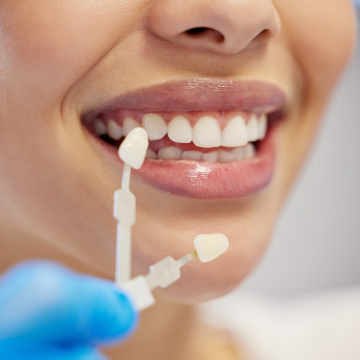 Santa Cruz, Scotts Valley CA
Santa Cruz, Scotts Valley CA
It is estimated that obstructive sleep apnea affects roughly 25 million people in the United States. Although anyone of any age can develop this sleep breathing disorder, it is more prevalent among men than women. Lifestyle choices and heredity also can play factors in someone’s susceptibility to sleep apnea. So can certain oral health conditions. Today on the blog, we take a look at how what transpires in your mouth can tell us about your sleep.
Teeth grinding
Clinically known as bruxism, this habitual grinding or clenching often occurs while someone is asleep. The grinding exerts extreme additional force on teeth, potentially leading to worn-down enamel, heightened sensitivity, pain in the jaws or teeth and damage up to the point that teeth may be worn down to the nubs. Bruxism also can occur as a reaction to sleep apnea. The patient grinds their teeth in an attempt to remove the obstruction from the airway and resume normal breathing.
Acid reflux
Acid reflux is an uncomfortable and sometimes chronic condition that occurs when stomach acid flows back into the esophagus. This condition causes irritation and inflammation in the airway, which constricts as a result and may be more vulnerable to the obstructions that occur during an apneic event.
Scalloped tongue
Look in the mirror and stick out your tongue. Do you see wavy or rippled indentations on the sides? This is referred to as a scalloped tongue and it is caused most often by swelling or inflammation, both of which can manifest as symptoms of a sleep breathing disorder such as sleep apnea. If someone is struggling to breathe while asleep, they may subconsciously push their tongue against their teeth in an attempt to open the airway. This friction with the tongue creates the scalloped look.
Mouth breathing
We have told you before about mouth breathing and its many potentially harmful ramifications – one of which is being a potential precursor to sleep apnea. Chronic mouth breathing while asleep often leads to snoring, and snoring is considered the major warning sign of sleep apnea. Mouth breathing also can alter the position of the tongue and jaws, making someone more likely to experience an airway obstruction during sleep.
Sleep apnea dentistry in Los Gatos, Santa Cruz and Scotts Valley in California
One of the specializations we offer at Ebrahimian Integrative Dentistry is sleep apnea dentistry. Although an official diagnosis of sleep apnea only can come from a qualified sleep specialist, Drs. Max and Ariana can perform an airway evaluation to detect signs that the sleep breathing disorder may be present. Our dentists also have the training and experience to identify signs in the mouth such as the ones listed above and then determine if they are indicative of a greater issue such as obstructive sleep apnea. Once an official diagnosis has been obtained, you can return to our dental practice in Scotts Valley for treatment – usually without CPAP and through a course of oral appliance therapy.
Sleep apnea is a serious medical condition. Without proper treatment, the issue will only worsen. If you are experiencing signs of this sleep breathing disorder, schedule a consultation at Ebrahimian Integrative Dentistry today. Just call (831) 438-4411 or complete our online contact form.



